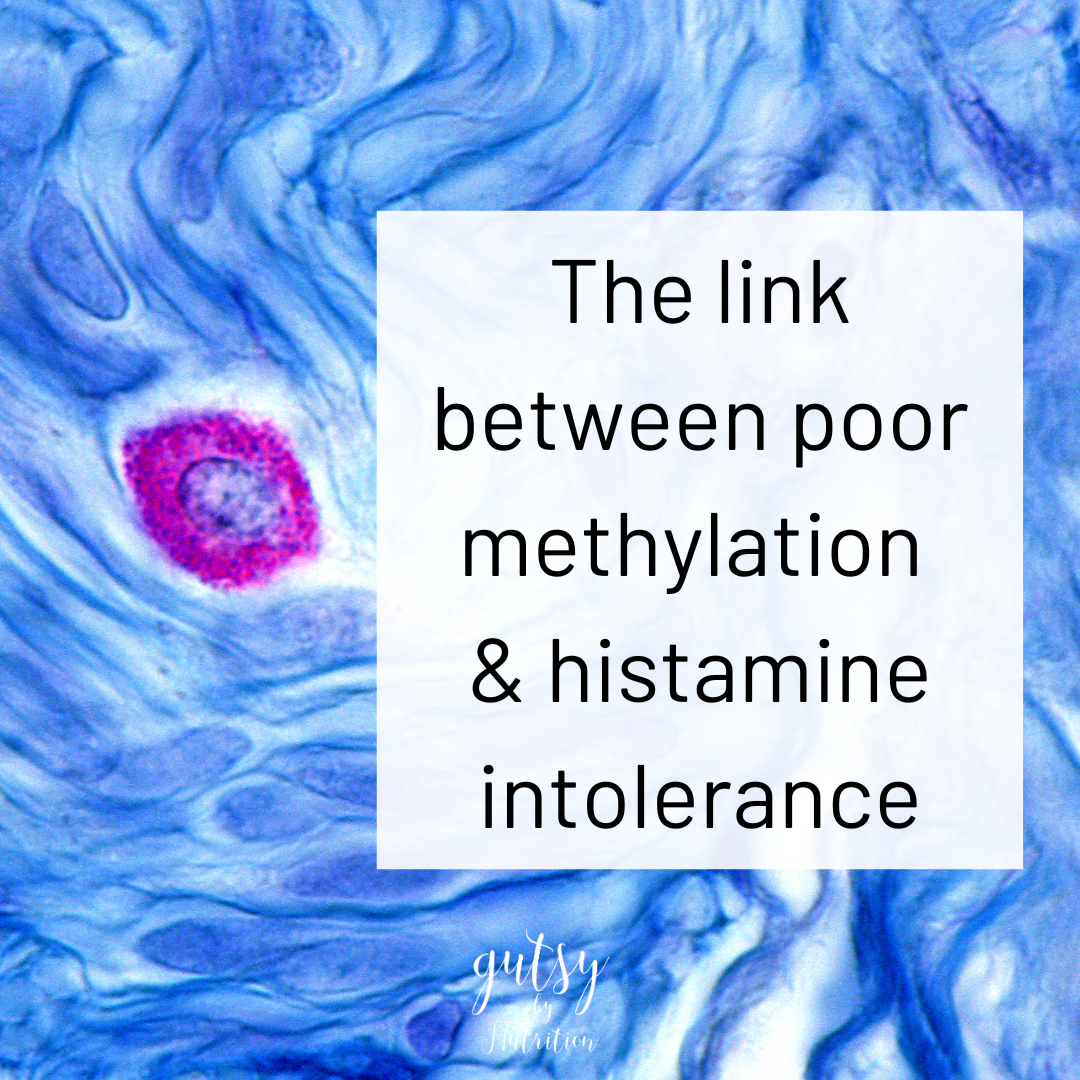The link between poor methylation & histamine intolerance
Methylation is a vital biochemical process that affects many bodily functions, including histamine metabolism.
If methylation is impaired, histamine intolerance can occur because the body struggles to efficiently break down histamine. This can lead to histamine buildup, resulting in symptoms like headaches, digestive issues, skin reactions and allergic-like responses.
Methylation helps the body manage histamines in several ways.
First, it plays a direct role in the breakdown and regulation of histamine, as certain enzymes involved in histamine metabolism or processing, such as HNMT and DAO, rely on methylation to function properly
Second, methylation supports detoxification pathways in the liver, helping eliminate excess histamine and other toxins from the body
Methylation also influences mast cell function, immune cells that store and release histamine. Again, when methylation is inefficient, the regulation of mast cells can be compromised, leading to an exaggerated immune response and excessive histamine release
To support methylation and improve histamine intolerance or MCAS
Consider resolving gut imblances, where much of our immunity resides
B vitamins (particularly B6, B12, and folate) are essential for methylation and histamine breakdown
Methylation-supportive supplements like SAMe (S-adenosylmethionine) and trimethylglycine (TMG) can help enhance the methylation process.
Foods rich in methyl donors can be high histamine like eggs, beets and spinach. Try fresh meats, fish, vegetables and other whole foods.
Supporting methylation can help optimise histamine metabolism and reduce symptoms related to histamine intolerance and mast cell activation.

